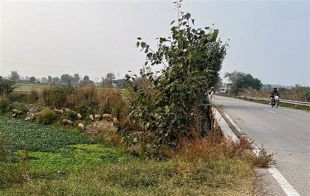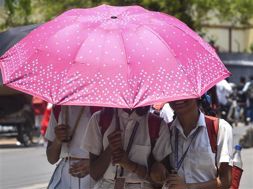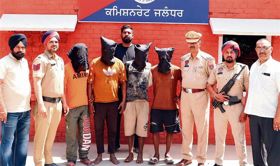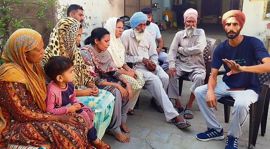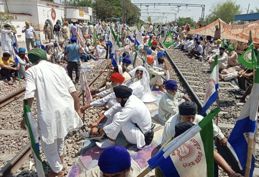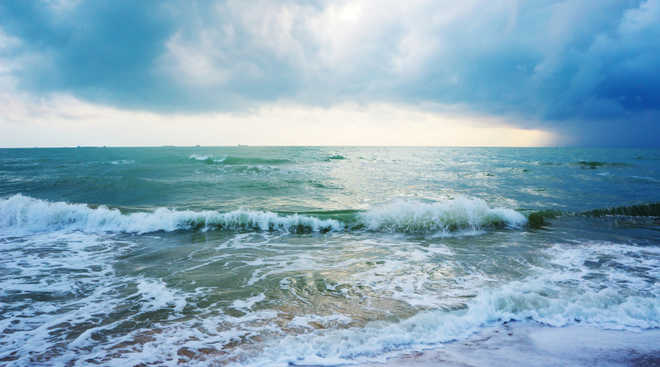
For representation only. File photo
New Delhi, August 11
Natural causes such as cyclones and waves, as well as human activities like construction have led to nearly one-third of a large part of India's coastline to be eroded in the last 26 years, but almost an equal area has been added because of new sediment deposits, according to a government report.
The National Centre for Coastal Research surveyed 6,031 km of India's 7,517-km coastline from 1990 to 2016, and found that 33 per cent of it has witnessed erosion, most of it along the eastern coast facing the Bay of Bengal, with West Bengal recording the highest erosion. At the same time, 29 per cent of the surveyed coastline saw an accretion, or gain in deposits.
"Erosion and accretion are complementary to each other. If the sand and sediments have drifted from one side, it must accumulate somewhere," said MV Ramana Murthy, director of NCCR and one of the authors of the report. The report says that 2,156.43 kilometres of the country's surveyed coastline faced erosion, while 1,941.24 km saw accretion on shore.
It has long been known that the coastline is eroding, but officials needed to map and document it so that various agencies could take corrective measures, said M Rajeevan, Secretary in the Ministry of Earth Sciences and another co-author of the report.
Erosion leads to loss of human habitation as seawater enters the land. This also effects farming done along the coasts. For traditional fishermen with small boats, beaches are gateway to the sea since they don't use fishing harbours. Loss of beaches means they have to use harbours to venture into the sea.
Accretion results in increase in the land area as beaches get extended, which is positive. However, if accretion happens in the deltas and creeks, then it has a negative impact on the ecosystem because silting of sediments stops the inflow of seawater into these areas. The estuaries and creeks are a breeding ground for several species of aquatic flora and fauna. Any disturbance hurts the eco-system, Murthy said.
The report found that 63 per cent of West Bengal's coastline has eroded, losing 99 sq km of land in the last 26 years. The second-highest loss was in Puducherry (57 per cent), followed by Odisha (28 per cent) and Andhra Pradesh (27 per cent).
Kerala is the only state on the western coast that saw erosion of over 40 per cent of its coastline, while Gujarat, Diu and Daman saw an erosion of 26 per cent, Maharashtra 24 per cent, Goa 12 per cent and Karnataka 22 per cent.
On the other hand, Odisha and Andhra Pradesh saw a high-level of accretion—51 and 42 per cent of their coastline respectively, according to the report by the NCCR, an institute under the Ministry of Earth Sciences.
West Bengal saw a 24 per cent accretion, Gujarat, Diu and Daman 31 per cent, Maharashtra 12 per cent, Goa 20 per cent, Karnataka 30 per cent, Kerala 21 per cent, and Tamil Nadu 23 per cent.
The survey measured 6,031 km of coastline, excluding creeks, and analysed 526 maps along 66 districts in 10 states and Union territories using data from five satellites - Landsat 5 and 7 (operated by NASA), ISRO's Resourcesat 1 and 2 and Cartosat-1.
The causes behind erosion differ from state to state, and the NCCR has started the second phase of the study to state-wise analyse the reasons behind it, Murthy said. He said major reasons for erosion are: changes in the wave pattern, wave intensity, cyclones and depressions that bring heavy rains and make the waters along the coastline choppy, reduction in sediments that rivers and other water bodies bring to the sea, rising sea-level and human activities like construction and dredging of ports.
Rajeevan, the ministry secretary, said the eastern coast showed more erosion because the Bay of Bengal witnesses rougher seas in comparison to the Arabian Sea.
Asked why Kerala, along the Arabian Sea, showed higher erosion compared to other western states, Rajeevan said the southern Arabian Sea is usually rough and tide movement is intense, which affects the coast.
The eastern coast is also prone to cyclones, depressions, Murthy said.
He said that besides the Southwest Monsoon (June to September), the eastern coast also witnesses the Northeast Monsoon from October to December and brings rain to coastal Andhra Pradesh and Tamil Nadu, which keeps the sea rough for most of the year.
"It has been recorded that the intensity and height of waves in the Bay of Bengal has increased over the years. This also affects the coastline," Murthy said.
Human activities are one of the reasons behind erosion of the coastline.
Murthy said there is a lot of dredging in port areas and sediments are usually dumped in deep seas.
"We usually recommend that the sediments should be dumped along the coast nearby," Murthy, who is often a part of the panels that give recommendations compiled in the Environmental Impact Assessment (EIA) report before giving clearance to ports, said. PTI





















